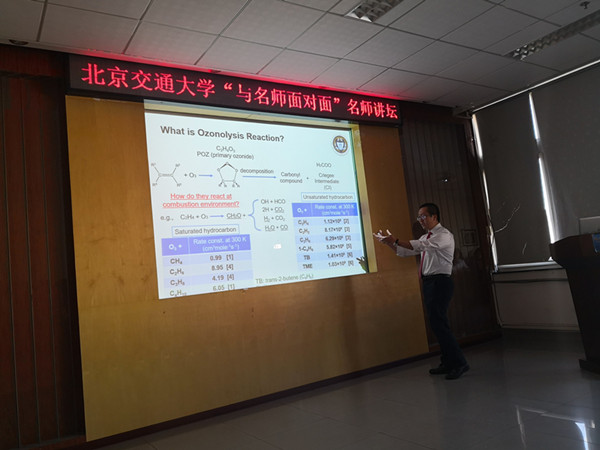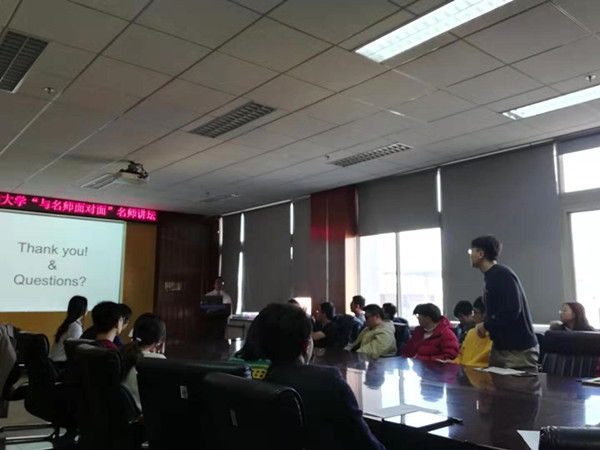Events
【Academic Lecture】Dr. Wenting Sun of Georgia Institute of Technology
Dr. Wenting Sun, from Georgia Institute of Technology, paid an academic communication visit at MECE on the afternoon of December 13, 2019. He was welcomed and received by Prof. Qi Chen, professor of MECE. Dr Sun gave a lecture afterwards in a cordial and friendly atmosphere.

Dr. Wenting Sun is currently an associate professor of Georgia Institute of Technology, School of Aerospace Engineering. He received his B.E/M.E degrees from Tsinghua University, Department of Engineering Physics in 2005 and 2007, respectively, and Ph.D degree from Princeton University, Department of Mechanical and Aerospace Engineering in 2013. His current research focuses on combustion kinetics, model reduction, plasma-assisted combustion, and laser diagnostics. He has been awarded the Bernard Lewis Fellowship from the Combustion Institute, and Distinguished Paper Award at the 33rd International Symposium on Combustion. He is a 2016 Air Force Office of Scientific Research Young Investigator Program Awardee.
Dr. Wenting Sun gave an academic lecture entitled “Plasma Assisted Combustion: Kinetics and Dynamics” in our school. Prof. Meiqian Chen and other teaching faculties attended this lecture as well as more than 40 graduate students from relevant majors.

In this academic lecture, Prof. Qi Chen first briefly introduced the general information and academic achievements of Dr. Wenting Sun. Then Dr. Wenting Sun primarily discussed the Background Of plasma and its effect on combustion, including its kinetic effect and thermodynamic effect. Then by introducing the experiment on swirl flame burner, Dr. Wenting Sun introduced how plasma affect flame dynamics by promoting early fuel oxidation. And next, Dr. Sun introduced the important role of ozone in plasma-assisted combustion, described the role of ozone in promoting the combustion process, and introduced the lift flame burner, and analyzed the role of ozone in promoting the oxidation reaction and spontaneous combustion during the ignition process of fuel. Technical challenges for the development of plasma-assisted combustion were also discussed.
At last, on behalf of MECE, Prof. Qi Chen expressed our gratitude to Dr. Wenting Sun, this academic communication event was successfully closed.








